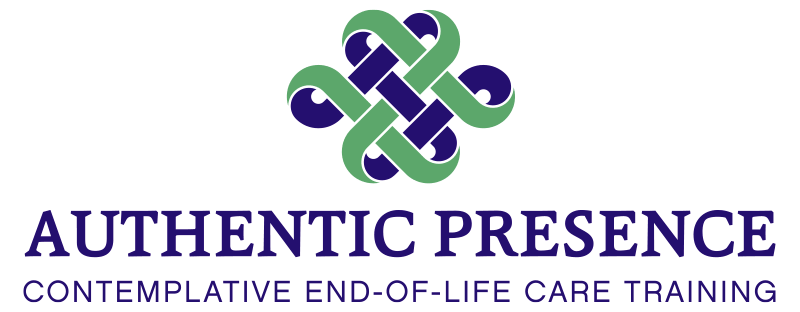Caring For The Human Spirit
Spirituality is an integral part of our human experience.
Cicely Saunders spoke about the need to attend to a person’s ‘total pain’: not just physical, but social, emotional and spiritual pain, too. A diagnosis of a chronic or terminal illness forces us to reflect on deeper questions of faith, spiritual belonging and meaning, living and dying.
In a survey conducted by the Center for Spirituality and Healing/George Washington University, 94% of patients with a very serious illness with the possibility of dying wanted to talk about spirituality.
But what do we mean by spiritual or spirituality?
In the contemplative approach, "spiritual" relates to the human existence that lies beyond the material -- the aspects of life which give a sense of meaning, connection, integrity -- and transcendence, or hope.
Thoughts from pioneers, clinicians and contemplative practitioners on the meaning of spirituality, spiritual care and end-of-life care:
“It means being open to help in whatever way we can in a dying person’s search for meaning in their lives, for their most important inner values, and as they look beyond themselves for what they see as true. I think that is the spiritual area, the spiritual need… That is what we are about: to find meaning and self-worth. Very essentially, listen to your patients. They will tell you what they need.”
Dame Cicely Saunders, founder of St Christopher’s Hospice in London and pioneer of the modern hospice movement
“Spirituality I take to be concerned with those qualities of the human spirit - such as love and compassion, patience, tolerance, forgiveness, contentment, a sense of responsibility, a sense of harmony - which bring happiness to both self and others.”
Dalai Lama
"Spirituality is the aspect of humanity that refers to the way individuals seek and express meaning and purpose and the way they experience their connectedness to the moment, to self, to others, to nature, and to the significant or sacred."
Christina Puchalski, MD, Director of the George Washington Institute for Spirituality and Health
“Compassionate presence is learning how to simply ‘be’, to be still and silent, with compassionate attention and an open heart, and with a deep confidence that in this space, those who are suffering can re-connect with their own inner sources of strength, meaning and hope.”
Christine Longaker, co-founder of Spiritual Care Programme and author of Facing Death and Finding Hope
“In one sense, I don’t think there is such a thing as spiritual care. There is just care of whole persons... I begin by listening. If you are able and prepared and can listen, people will show you their spirituality.”
Dr. Ira Byock, palliative care physician and author of Dying Well
“It is now accepted that healthcare professionals need to be sensitive to cultural issues, gender issues and psycho-social issues. To put spiritual issues on the same level, not just in palliative care but throughout medicine, is the goal that will be ultimately reached.”
Dr. Gian Borasio, neurologist and Professor & Chair in Palliative Medicine, University of Lausanne, Switzerland.

